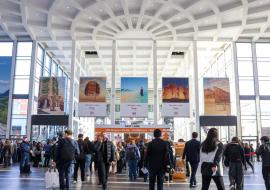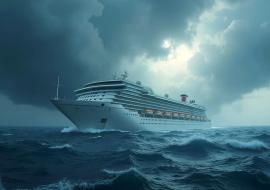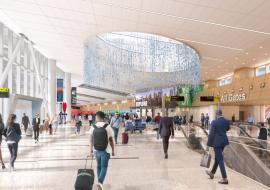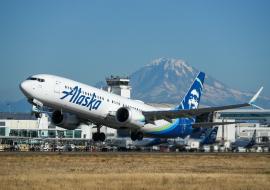France Braces for a Summer with No Tourists

France set a new tourism world record in 2018, welcoming nearly 90 million foreign tourists, according to the French government. With 19.1 million foreign visitors, Paris was the second most-visited city worldwide, according to Mastercard's 2019 Global Destination Cities Index. Revenue from international tourism was a record $60.7 billion for the year, or roughly one-sixth of France's gross domestic product.
The current year is shaping up quite differently. All non-essential businesses including restaurants have been shut down since March 15. A progressive plan of deconfinement began on May 11, but plans for cafés and restaurants won't be announced until the end of May. Borders will remain closed until at least mid-June.
More than one-third of French workers, including those who work part-time in restaurants and hotels, are currently on temporary unemployment. The program, established by the French government at the start of the coronavirus epidemic, pays businesses all or most of the salary of temporarily inactive employees (up to 4.5 times the minimum wage) to keep workers on the payroll.
On Thursday, May 14, French Prime Minister Edouard Philipe announced a major $19.4 billion (18 billion euros) stimulus package for hotels, restaurants and other businesses in the tourism industry, according to U.S. News & World Report.
Dubbed a "Marshall Plan" for the tourism industry, the package includes a solidarity fund through the end of 2020; more funds for larger government-backed loans to businesses; and an extension of government-paid partial unemployment for workers as long as companies are forced to remain closed.
While travel in France is currently restricted to within 100 kilometers (about 60 miles) of home, Philipe also announced that French people will be allowed to travel inside the country beyond that distance for vacation in July and August.
He also said that the amount of restaurant vouchers, a preexisting government-funded program paying for all French workers to buy restaurant meals during the work week, will be doubled and extended to holidays and weekends.
Even when businesses do reopen, workers in the tourism industry say no one is sure how many businesses will survive the next year without international tourists.
The question for all businesses remains how long it will take for the French and global economies to return to quasi-normal. Tomasz Michalski, an associate professor of economics and decision sciences at the HEC Paris business school, predicts that the French tourism industry is likely to miss out on an entire year of revenue and expects the government to put in place additional policies to aid to the sector.














